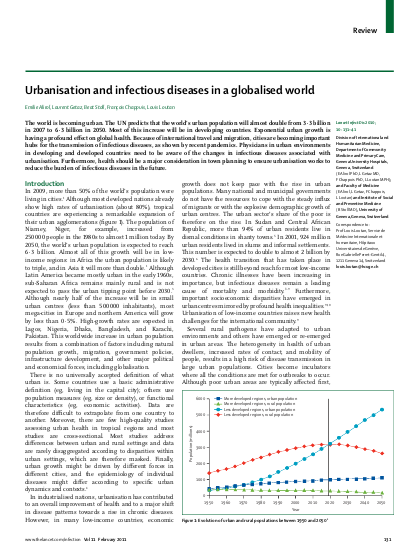
The world is becoming urban. The UN predicts that the world’s urban population will almost double from 3·3 billion in 2007 to 6·3 billion in 2050. Most of this increase will be in developing countries. Exponential urban growth is having a profound eff ect on global health. Because of international travel and migration, cities are becoming important hubs for the transmission of infectious diseases, as shown by recent pandemics. Physicians in urban environments in developing and developed countries need to be aware of the changes in infectious diseases associated with urbanisation. Furthermore, health should be a major consideration in town planning to ensure urbanisation works to reduce the burden of infectious diseases in the future.
Links
Resource collections
- UN Habitat - Urban Response Collection
- Urban Response - Urban Crisis Preparedness and Risk Reduction
- Urban Response Collection - Community Engagement and Social Cohesion
- Urban Response Collection - Economic Recovery
- Urban Response Collection - Environment and Climate Change
- Urban Response Collection - Housing, Land and Property
- Urban Response Collection - Urban Crisis Response, Recovery and Reconstruction
- Urban Response Collection - Urban Resilience